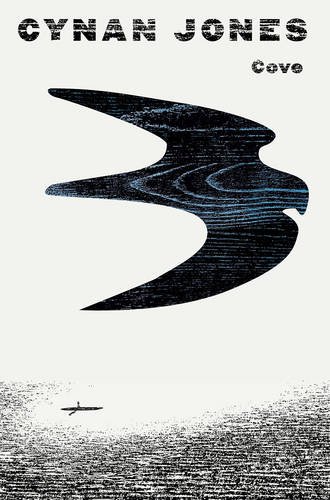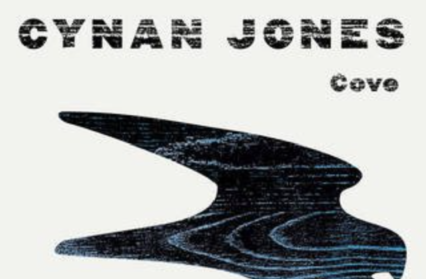Rabeea Saleema reviews Cove, the latest novel from Cynan Jones, and finds a book that is a contemplative look at the relationship between man and nature.
In a time when novels are getting more robust, replete with increasingly ostentatious, over-embellished writing, Cove comes as a breath of fresh air. It has an elementary plot; A man goes fishing in his kayak, planning to scatter his father’s ashes in the sea. While fishing, he is struck by lightening. When he regains consciousness, he finds himself injured and disoriented on his drifting kayak. He has no memory of how much time has elapsed, or the direction in which he is supposed to go. Only sheer willpower and instincts are on his side as he fights for his survival.
 Most people who have been in accidents or other life-threatening events encounter a phenomena called temporal distortion. Thoughts seem to speed up while time stretches out. They report acute sense of vision, with their attention narrowly focused on the factors relevant to survival. The most distinctive feature however is that the person perceives the cataclysmic event as having a longer duration than it actually does. The writer cleverly spins all these factors into his sparse narrative to give us a vivid experience of the urgency of the setting and the imminent sense of danger.
Most people who have been in accidents or other life-threatening events encounter a phenomena called temporal distortion. Thoughts seem to speed up while time stretches out. They report acute sense of vision, with their attention narrowly focused on the factors relevant to survival. The most distinctive feature however is that the person perceives the cataclysmic event as having a longer duration than it actually does. The writer cleverly spins all these factors into his sparse narrative to give us a vivid experience of the urgency of the setting and the imminent sense of danger.
In this slim novel which comes to just under 100 pages, Cynan Jones manages to sketch a formidable portrait of the fury of nature. In his visceral descriptions of the mighty sea, birds and fish, his stark, primal style is reminiscent of that of Ted Hughes’ poetry. There is a cinematic thrill to his writing, which induces a sense of pulsating alarm in the reader. He employs pithy prose to express the wounded narrator’s feelings of growing unease, panic and discombobulation as he lays stranded on the kayak. Jones uses compact passages with concise, poetic sentences which are effective in revealing just enough for the readers to keep turning the pages, without divulging everything at once.
The narration oscillates between being hallucinatory and realistic, probably to denote the protagonist’s disoriented state, as he slips in and out of consciousness due to extreme thirst and pain. His feelings of total alienation and claustrophobia when he realises that he is at the total mercy of elemental forces are vividly expressed.
He felt a confusion, a kind of throb in his head. There was a complete horizon. A horizon everywhere around and no point of it seemed close than another.
The man, in his dazed state, ruminates about his life – his dead father, the woman and child who are waiting for him at the shore – and these portions give us insight into fragments of his past. In his more lucid moments, while implicitly aware that the odds are against him, the protagonist tries to spur himself into action by counting and rationing his meagre supplies (water, First-aid kit etc).
He does not add: one man. One out of two arms. Four out of ten fingers. No paddle. No torch. One dead phone.
The sun drops beautifully.
Like in the excerpt above, Jones at times juxtaposes the diametrically opposing attributes of nature – both, the awe-inspiring beauty and the invincible menace of it. He further expounds on in how as much as we are terrified of nature, we also find solace in it.
He looks at the stars, sees those on the horizon. That some of them might be the lights of ships, of land, he can’t allow himself to think… It is better they are stars. That they are out there somewhere in the same infinity as him. That they are not real beacons.
Ultimately, the Cove is a contemplative look at the contradictory relationship between man and nature with a delicately laconic prose which gives us a graphic, palpable sense of the plight of the narrator. The structure of the novel is innovative, with every sentence executed with perfection and fragmentary paragraphs embodying the narrator’s disconnected state. Cove is an extraordinary novel with some terrific, illustrative prose and reading it is a thrilling, immersive experience.
Cove was published by Granta.
More of Wales Arts Reviews’ features on Cynan Jones can be found here.
Rebeea Saleem is a regular contributor to Wales Arts Review.












